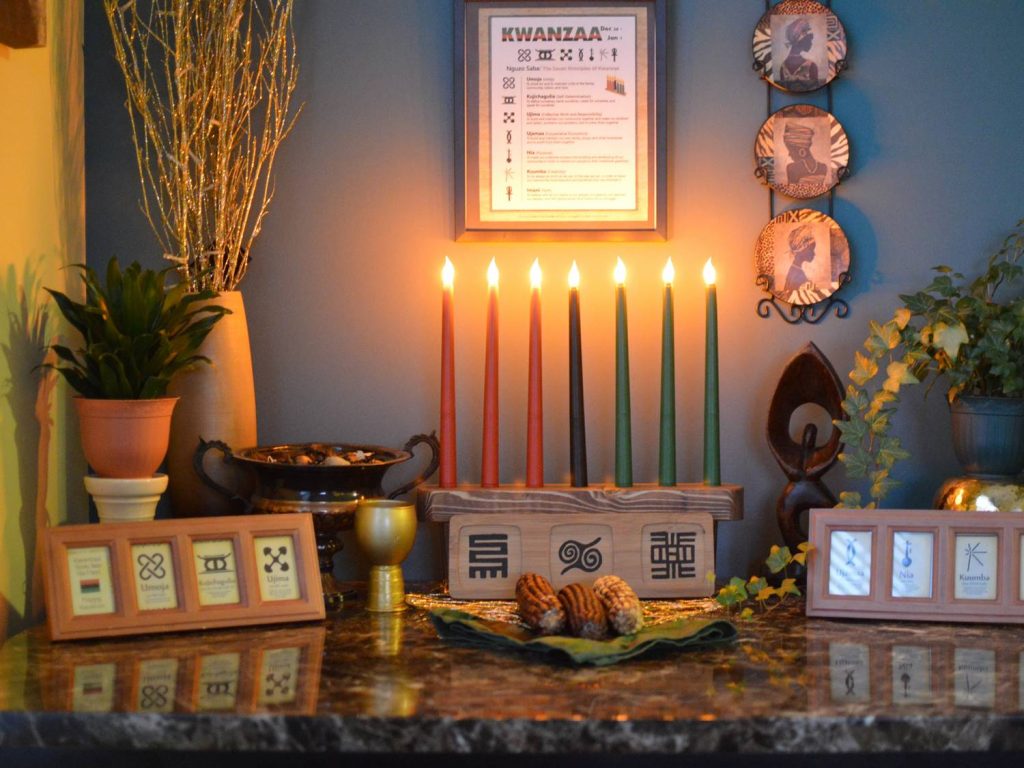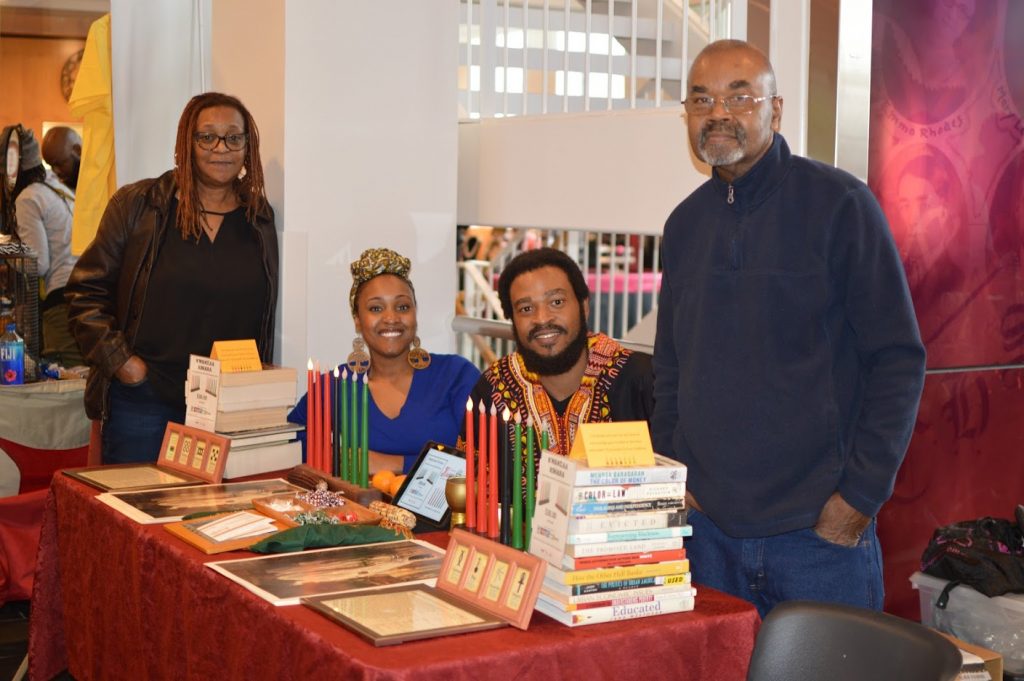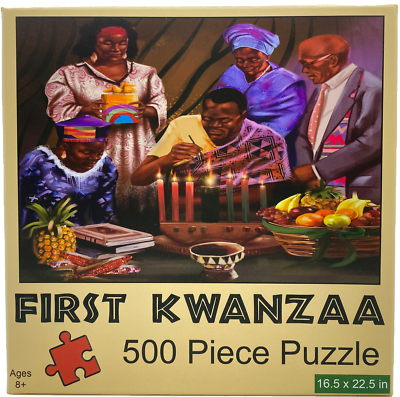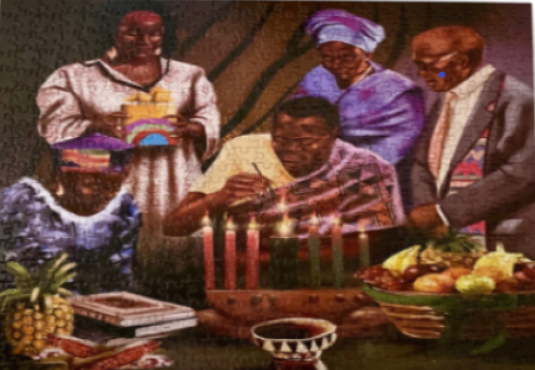CELEBRATING AT HOME AND WITH OTHERS
It is important to remember that Kwanzaa is not a religious holiday; it is a cultural holiday, one which can call all walks of life and faiths in the Black community to come together and celebrate these staple Pan-African principles.
Each night of Kwanzaa, starting on December 26th and ending on January 1st, a candle is lit or turned on in the Kinara (a 7-hole candle base). The black candle in the center is lit on the first day. For each day afterwards, alternate lighting from left to right (first the red and then the green candle) ending on the farthest green candle for day 7.

The photo to the left shows a Kwanzaa display with all candles lit/activated for the 7th day of observance. It is recommended that the principle of each day be studied and observed with family & friends, in addition to the lighting observances. When possible, include children in the discussion and acknowledgment of each day’s significance since there is much they can learn from discussing the unifying principles.
During the daylight hours of Kwanzaa some community organizations sponsor celebrations, bazaars, and seminars to highlight the Kwanzaa traditions and principles to the broader Black community and beyond.

There is a dietary component for the Kwanzaa community that is often observed during some of its seven-day celebration. Chosen diet practices can include fasting from sunup to sundown to serving and eating vegetarian meals which helps cleanse the body for the new year. An anticipated event of the week-long celebration is a special feast or banquet called the Karamu which is held on December 31st. It is the day when families come together for a big dinner and a big celebration of unity. Karamu can be an afternoon event or part of the New Year’s Eve celebration.
Imani is the final day of Kwanzaa and is celebrated on New Year’s Day (January 1st). The closing of Kwanzaa with Imani should inspire our community to begin developing and acting on Kwanzaa principles throughout the year.
Idea! Create a vision board for the new year using the 7 Kwanzaa principles to serve as inspiration for your new goals and resolutions.
Gifting is also done on the final day of Kwanzaa. Gifts (Zawadi), often hand-made and thoughtful in nature, are presented/distributed on January 1st. It is highly recommended to gift educational items, such as books, because their effects are everlasting (knowledge, inspiration, and wisdom). Puzzles, crafts, journals, and plants are also great Kwanzaa gifts.



